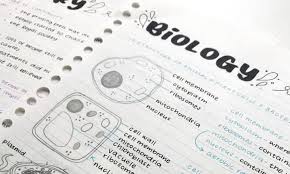Intro
Learning how to take effective notes is a key part of studying efficiently. The right notetaking technique can help you process information better, retain it longer, and organize your thoughts in a way that makes reviewing easier. Heres a quick overview of some popular notetaking methods and how they can be applied:
Cornell Method 📚
How it works
- Divide your paper into three sections: a narrow left-hand column for cues, a wide right-hand column for notes, and a bottom section for a summary.
- During the lecture or while reading, take detailed notes in the right-hand column.
- Afterward, write key terms or questions in the left-hand column as “cues” to help you review the material.
- At the bottom of the page, summarize the main ideas in your own words
Why it helps
- Organizes information clearly, making it easy to review.
- Forces you to actively engage with the material during the review process by summarizing and writing cue questions.
Mind Map 🧠
How it works
- Start with a central idea or topic in the middle of the page.
- Branch out from the center with related concepts, facts, or ideas.
- Use keywords, symbols, and colors to make the connections between topics clear
Why it helps
- Great for brainstorming and seeing the “big picture.”
- Helps with memory retention through visual associations.
Active Recall
How it works
- Instead of just reading your notes, quiz yourself on the material by trying to recall key information from memory without looking at your notes.
- Review material, but actively engage with it by writing down everything you remember first, then checking for accuracy.
Why it helps
- Research shows that the more effort you put into trying to retrieve information, the better your memory becomes.
- Encourages deeper understanding and long-term retention of information.
Conclusion
By combining these techniques, you can enhance how you engage with the material and improve your learning process. Whether it’s summarizing a textbook with the Cornell Method, brainstorming ideas with a mind map, or actively recalling concepts to test your memory, each method has its strengths. Finding the right approach (or combination of methods) for you can make a huge difference in your studies!
